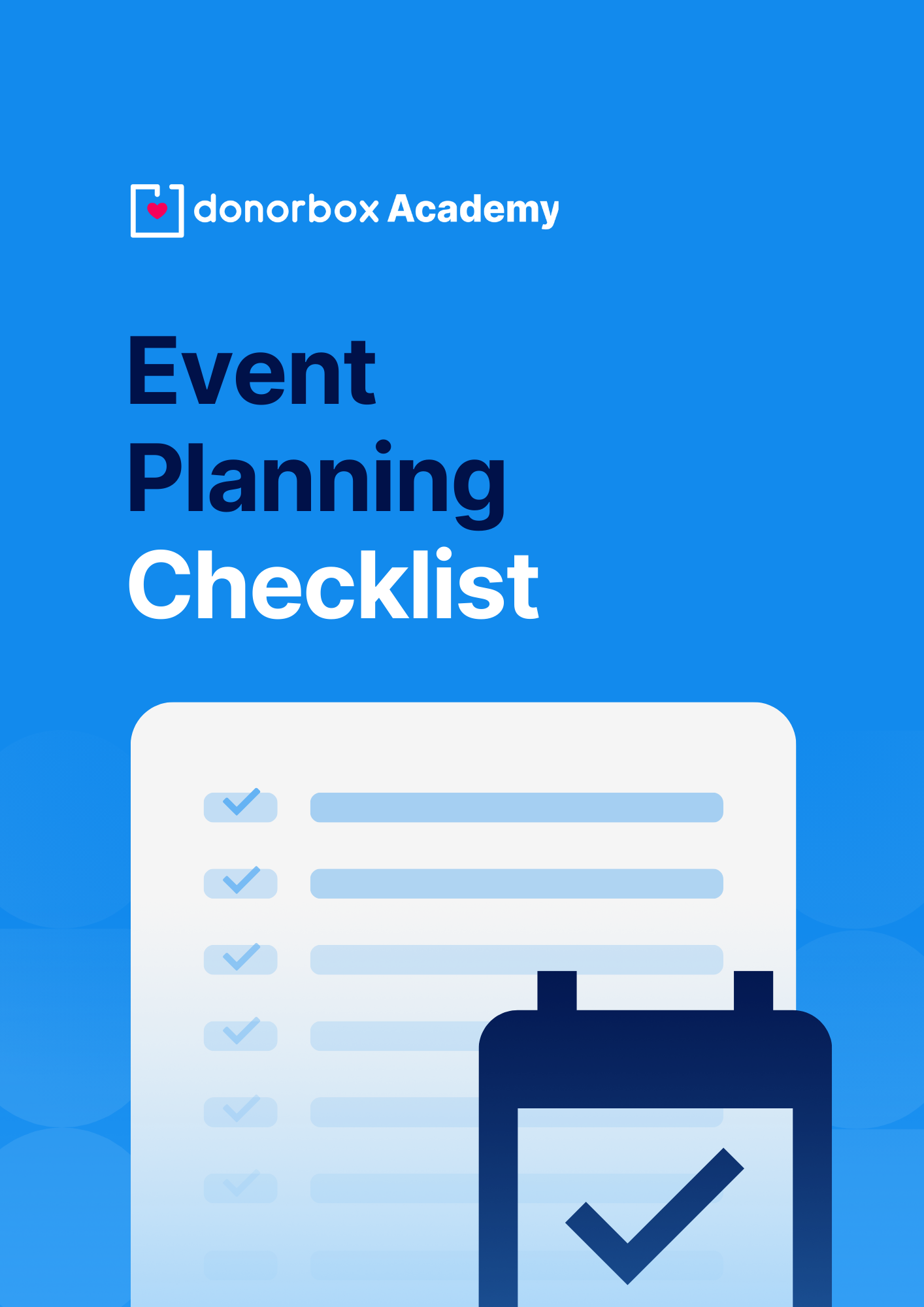It’s no secret that planning and hosting successful fundraising events can take a lot of time, effort, and resources. But, when done well, it’s also true that these events can be highly engaging and bring in significant funds for your nonprofit, often from new donors!
The first piece of advice we can give you is to take your time. Start planning as early as possible – up to a year out if you can – and walk through each step of the process with care and attention to detail.
That’s where the free Event Planning Checklist above can help. You’ll find that we’ve included everything from your first planning meeting with your event team through sending post-event thank-you notes and capturing data to help you plan next year’s event.
Each action item in the checklist is broken down into categories as well as into a planning timeline to keep you on track.
To begin your event planning process, first download and review the checklist. Then, put together a team of staff members, board members, and/or volunteers to help you tackle it, one step at a time.
Next, it’s important to establish the purpose of your event, including what kind of event you’d like to host. Here are a few examples and ideas to get you started:
• A black-tie gala
• A benefit concert
• A 5k or fun run
• A golf tournament
You also need to solidify an event budget, fundraising goal, and event outline and timeline.
After the basics of your event are established, they will inform the remaining decisions you need to make, including:
• An event venue
• Catering
• Decorations
• Entertainment
• Ticket prices
• And much more!
Once all of these details are finalized, you should start marketing your event. Determine who you’d like to reach and target them through a cross-channel marketing campaign, including email, social media, direct mail invitations, phone calls, digital and traditional advertising, and more. Plus, you can use Donorbox Events to quickly and easily sell tickets online!
Ready to get started? Download the Event Planning Checklist today and give this episode of The Nonprofit Podcast a listen to learn more event planning fundamentals.








